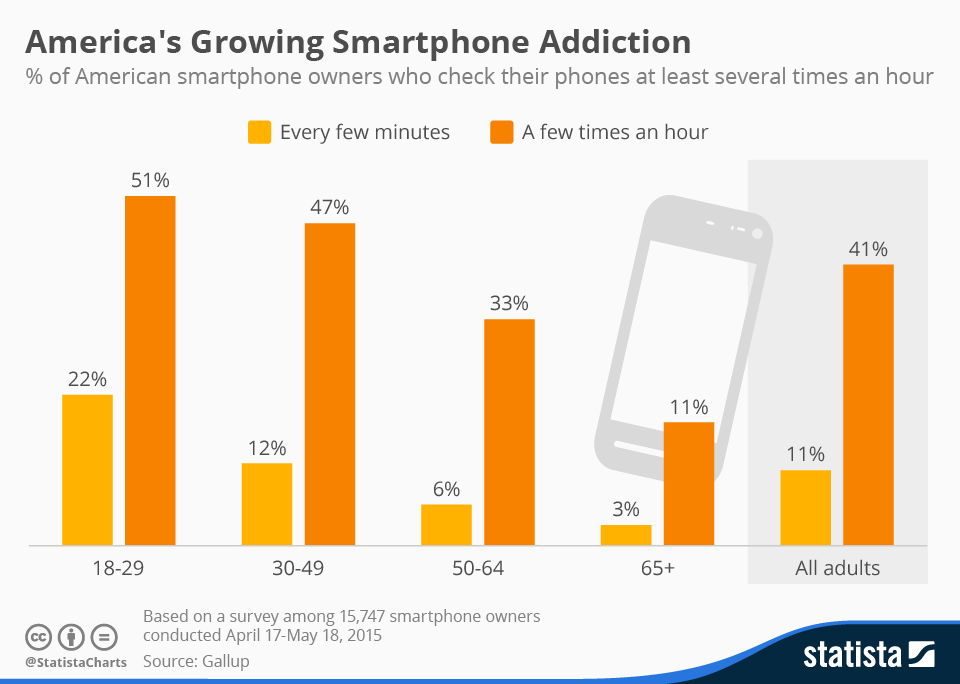
Marcus Garnot, Copy Editor |
With the start of the new decade, we’ve surpassed our eighteenth year with smartphones and our twelfth with iPhones. Since their beginning, smartphones have become so advanced in terms of technology and usability that our indoctrination into the technological world is happening younger and younger. Beyond their obvious benefits––immediate worldwide communication, a mass source of knowledge, endless entertainment, just to name a few––smartphones have transcended the world of luxury technology into that of the everyday American (over 250 million Americans now own smartphones).
But now it seems that younger generations are becoming more involved with their lives on social media and, perhaps a point of greater concern, less content with life outside of them. Is excessive phone usage negatively affecting our generation’s mental health?
A professor of mass communications at SUNY Oneonta recently showed my class several videos that addressed the negative effects of high phone usage on young adults, which included links to sleep deprivation; higher rates of anxiety, depression, and suicide; lower rates of physical intimacy; and less desire to spend time with friends in person, to name some. While a few students dismissed it as “boomer” mentality trying to suppress the realities of the evolving modern world, I think there’s reason to be wary of the connections my professor presented. In that sense, it’s hard to deny testimony from actual young social media users themselves.
Via a small-scale Instagram poll, a majority of participants voted “Yes” when asked “In your experience, do you think higher phone usage negatively affects your mental health?” Answers about daily time spent on their phones ranged from 2.5 and 3 hours to 6, 7 and even 16 hours. While these times are obviously too varied to make any generalizations, they do become interesting when one considers how the participants themselves describe their experiences.
When asked how phone usage affects their mental health, several users shared their sentiments: “I notice the more time I spend on my phone, the worse I feel,” one user said. “I am much more critical of my body’s natural size/shape when I spend more time online,” another added. “Makes me feel unproductive and worried about others,” someone else shared.

While these few comments aren’t intended to represent the opinions of every smartphone user on social media, they do indicate an alarming relationship between unhappiness and high phone usage. And though some were less certain––“Sometimes it helps but overall it is bad”––a minority felt that there is no link whatsoever: “I don’t think that affects my mental health.”
But is it too early to tell whether our attachment to social media is the cause for all this? In the coming years, as smart technology continues to grow pervasive––and invasive––another scapegoat may present itself, freeing this younger generation of the guilt associated with growing up in the “internet era.” More importantly, as more long-term studies of mental health emerge, we can potentially know, with more certainty, what the cause is for our generation’s dissatisfaction.
Is there some other factor being ignored? Are phones not the problem? Do they do more good than harm? Or are they really becoming detrimental to us? No matter what side of the fence you find yourself on, it might be worth it to consider how much time you spend on your phone and social media.
Leave a Reply